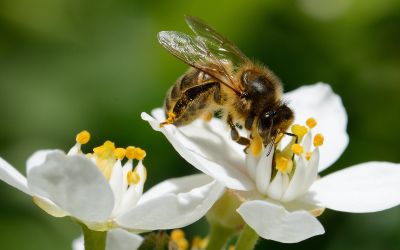Climate change is threatening the future of UK sport
A new report released today has highlighted the damaging impact climate change is already having on some of the UK’s most beloved sports.

A new report released today has highlighted the damaging impact climate change is already having on some of the UK’s most beloved sports.
The Climate Coalition, a group of 130 leading organisations, has analysed climate change’s effects on golf, cricket and football in the country.
It reveals that extreme weather is placing these national sports in jeopardy, leading to more matches being abandoned and courses at risk of closure.
Increased rainfall; dry, stormy summers, and milder winters culminate in new risks and challenges to how these sports can be played.
Cricket is being hit especially hard as the pitch is so determined by climatic conditions. The report details how over the past seven years the number of matches effected by rain has more than doubled. In addition, since 2000, rain has caused 27 percent of England’s home one-day games to be played with reduced overs.
Dan Musson, the England and Wales Cricket Board’s (ECB) National Participation Manager, said: “There is clear evidence that climate change has had a huge impact on the game in the form of general wet weather and extreme weather events”.
This is also true of golf where the very existence of courses is being threatened by coastal erosion. Since 1990, sea levels have risen by an average of 15-20cm around the UK, a symptom of higher global temperatures due to climate change. This poses a particular issue for Scotland where 100 of its 600 courses are located on the coast.
Steve Isaac, Director of Sustainability at The R&A, which helps govern the sport worldwide, commented: “Golf is impacted by climate change more than most other sports. Trends associated with climate change are resulting in periods of course closures, even during summer, with disruption seen to some professional tournaments. We are witnessing different types and timings of disease, pest and weed outbreaks. The future threats are very real, with course managers having to show adaptation if we are to maintain current standards of course condition. It is something we take very seriously.”
The Football Association in England has already invested £48 million to help pitches adapt to harsher weather conditions. Lower league teams and the grassroots game are being particularly impacted with more matches being cancelled due to flooding.
The report does commend both Manchester United and Manchester City in responding to environmental pressures. City has built a football academy which absorbs carbon dioxide and produces zero waste. United has also incorporated a variety of sustainable practices at its training ground, such as energy-from-waste and recycling rainwater.
Patricia Espinosa, the UN’s lead climate change negotiator, highlighted how sport can take can the lead in responding to these new challenges: “Sport is a $600bn global business with a unique power to convene, move and inspire… We stand ready to support efforts within sport to work towards the climate secure, resilient economy that world leaders committed to in Paris”.
Image Credit: Fancy Crave




